Are you feeling overwhelmed by a conflict that seems to have no resolution in sight? Navigating the complexities of dispute arbitration can be daunting, but it doesn't have to be. In this article, we'll break down a simple letter template that can guide you through crafting a proposal for arbitration, ensuring your voice is heard and your concerns are addressed. Join us as we explore the essential elements of an effective arbitration letter that can help turn your disagreements into constructive conversations!
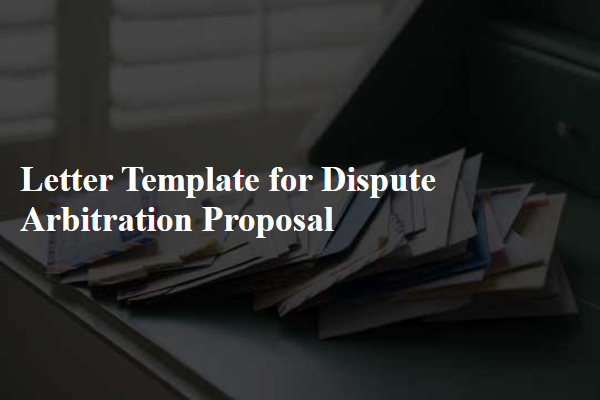
Clearly defined issue statement
A well-structured issue statement is essential in an arbitration proposal to ensure all parties understand the core conflict. The dispute typically centers around a contract breach involving Company A and Company B, dated March 1, 2023, concerning a supply agreement for raw materials, where both entities agreed on the delivery schedule and price specifications. Company A alleges that Company B failed to deliver the agreed-upon quantity of materials (200 tons) by the stipulated deadline of April 15, 2023, leading to financial losses exceeding $50,000 due to production delays. Company B counters this statement, claiming that unforeseen circumstances, specifically a natural disaster, hindered their ability to fulfill the contract on time. The crux of the issue lies in the interpretation of force majeure clauses within the contract, requiring clarification on liability and compensation terms as outlined in Article IV of the agreement.
Proposed arbitration process
The proposed arbitration process encompasses a structured alternative dispute resolution approach to address conflicts effectively and efficiently. Initially, parties involved will agree to appoint a neutral third-party arbitrator, preferably with expertise in the relevant industry, to ensure fairness. A preliminary conference will be scheduled within 14 days to set deadlines and outline procedures. The arbitrator will then facilitate the submission of written statements, including evidence and witness lists, within 30 days. Following the submission phase, a hearing will occur, allowing each party to present arguments and evidence before the arbitrator. This hearing will take place within 60 days, ensuring timely resolution. After deliberation, the arbitrator will issue a binding decision within 30 days. This streamlined process aims to reduce costs and provide a final resolution without the extensive duration of litigation in a courtroom.
Selection criteria for arbitrator
An effective proposal for dispute arbitration requires a selection criteria process for the arbitrator that ensures impartiality, expertise, and suitability. Ideal candidates should possess relevant legal qualifications, such as a Juris Doctor degree, and significant experience in arbitration, particularly in the applicable field, such as construction or commercial law. Arbitrators must demonstrate neutrality, devoid of any conflicts of interest, and have a proven track record of fair decision-making in previous cases, ideally with documented outcomes from organizations like the American Arbitration Association. The arbitration panel should also consider diversity, bringing a range of perspectives and backgrounds that reflect the demographics of the involved parties. Additionally, prospective arbitrators should be evaluated based on their engagement in continuous professional development, ensuring they remain informed of current laws and arbitration best practices.
Timeframe for resolution
In a dispute arbitration proposal, establishing a clear timeframe for resolution is crucial to ensure that all parties understand the timeline for proceedings. Generally, arbitrations can vary in duration, yet a typical timeframe might range from six weeks to six months, depending on the complexity of the case and the availability of necessary documentation. For instance, preliminary hearings can be scheduled within two weeks of filing, while discovery phases might extend to four weeks. Following discovery, a timeline for hearings can be proposed, often occurring within a month. Additionally, post-hearing briefs may be required within two weeks after the conclusion of hearings, with final decisions delivered within 30 days. Clearly defined timelines help facilitate more efficient and effective dispute resolutions.
Confidentiality terms and conditions
Confidentiality terms in dispute arbitration proposals establish a secure environment for sensitive information. Confidentiality ensures that all parties involved, such as corporate entities or individuals, protect proprietary data and personal insights during the arbitration process. These terms often stipulate that any documents, communications, or evidence presented, such as trade secrets or confidential financial records, remain strictly between the involved parties and the appointed arbitrator. Violations can lead to legal consequences, including monetary penalties or injunctions. In some jurisdictions, confidentiality agreements can be enforced under local arbitration laws, enhancing trust and cooperation among disputing parties, often seen in high-stakes negotiations in sectors like finance or technology.

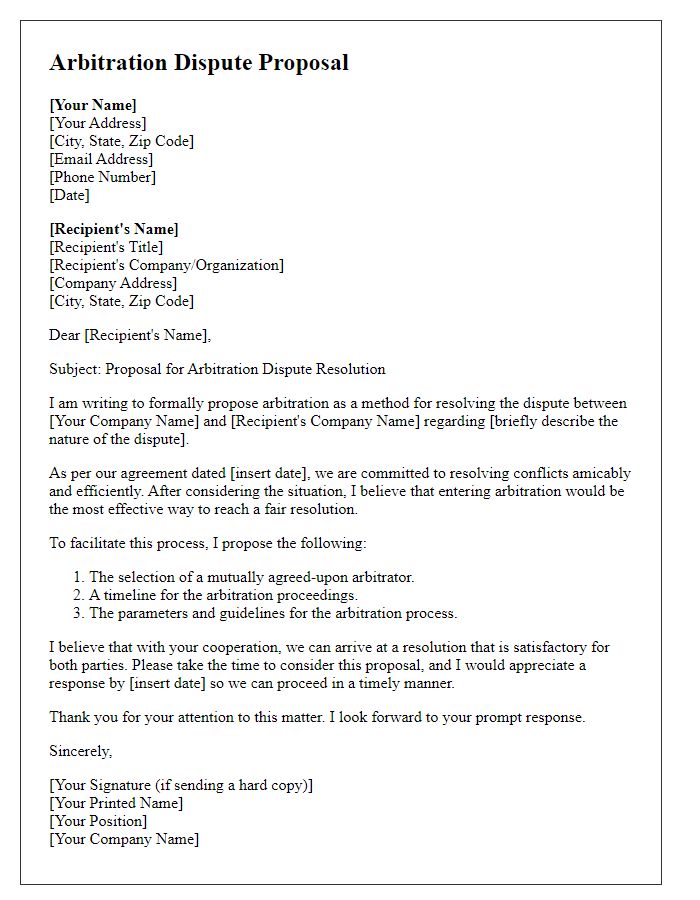
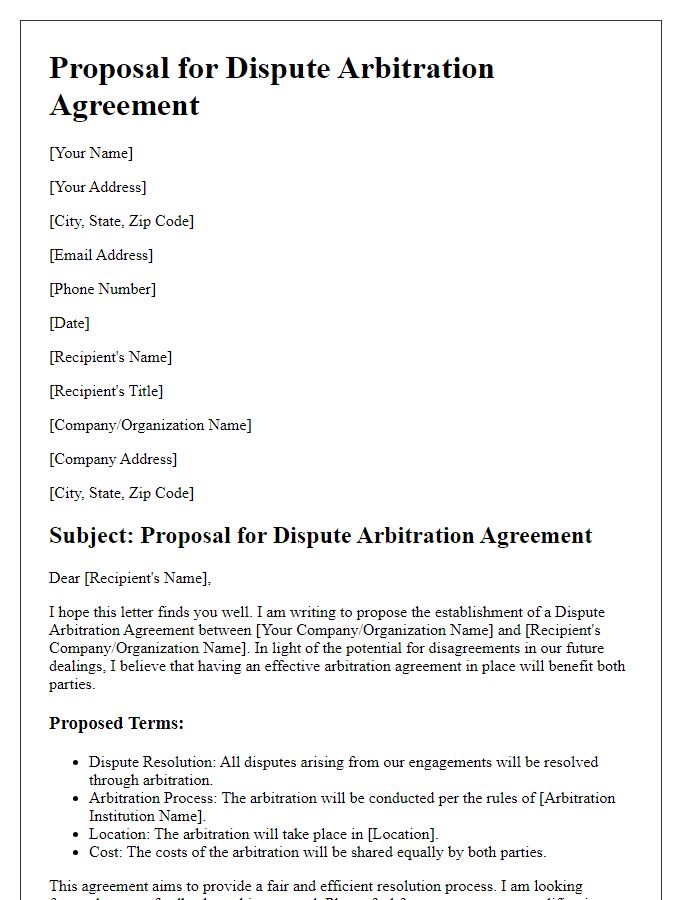
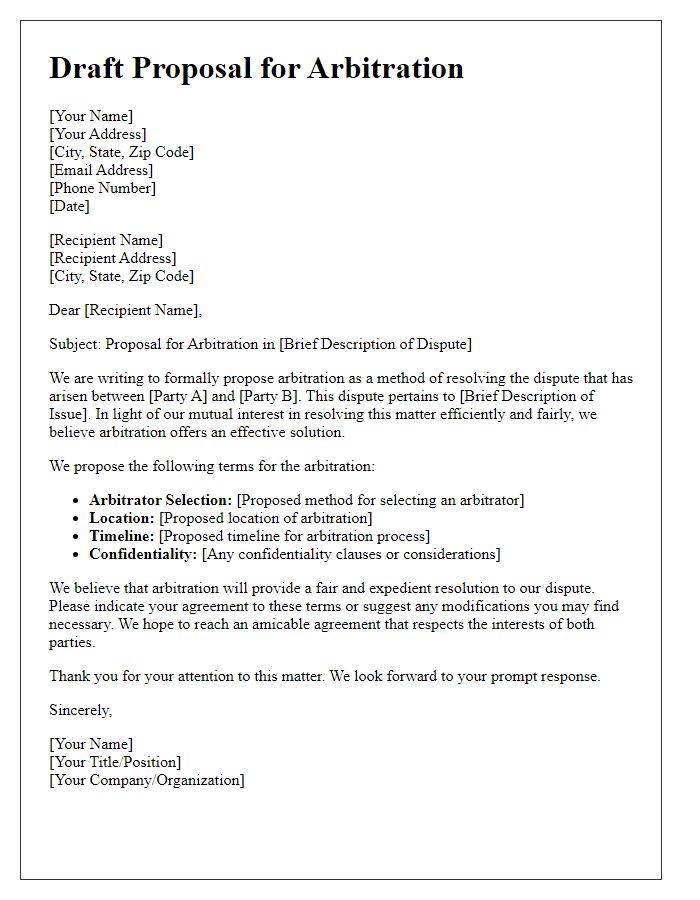
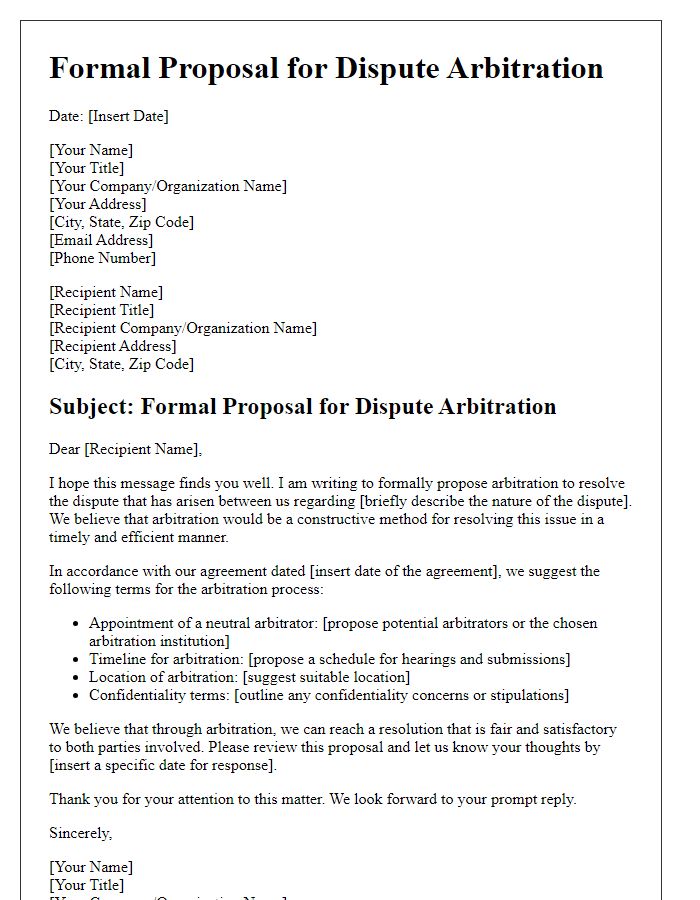
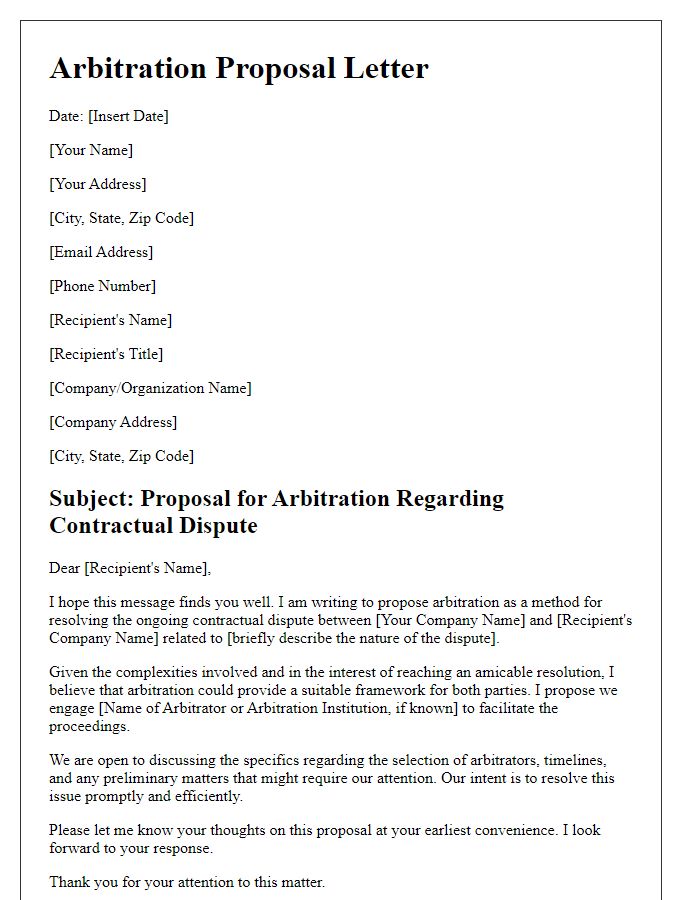
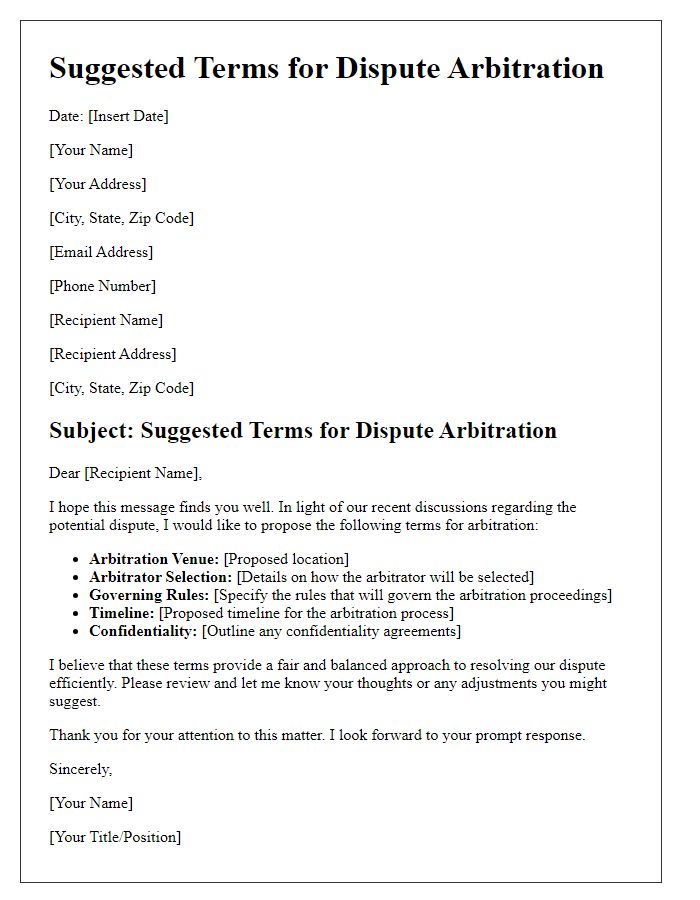
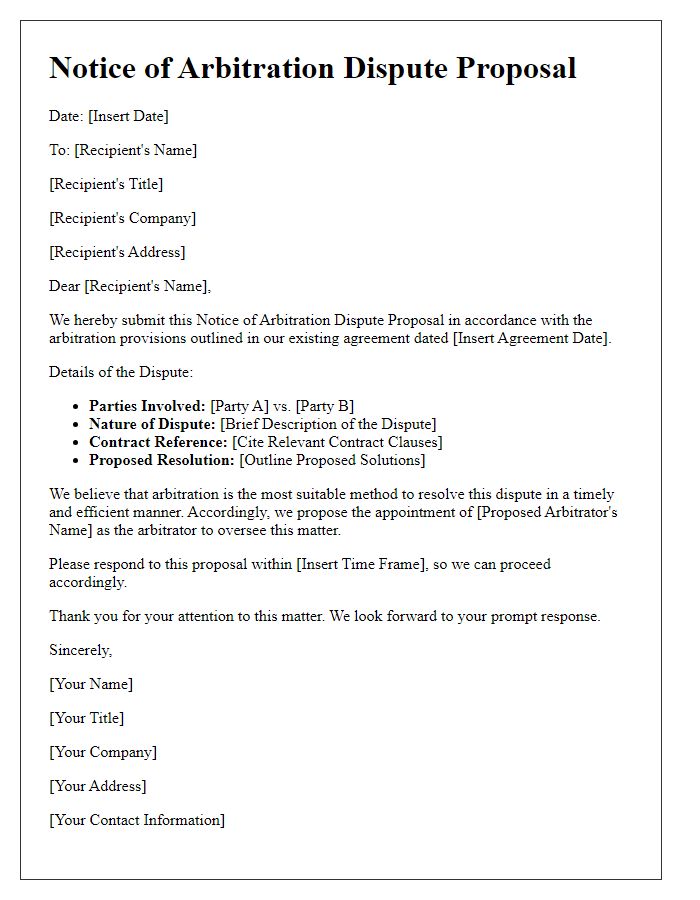
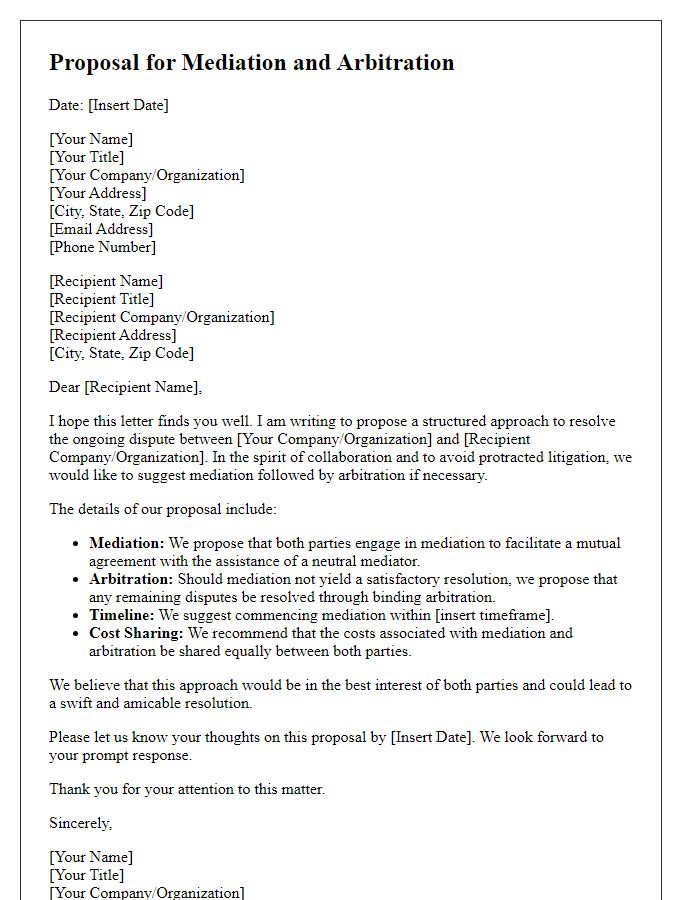
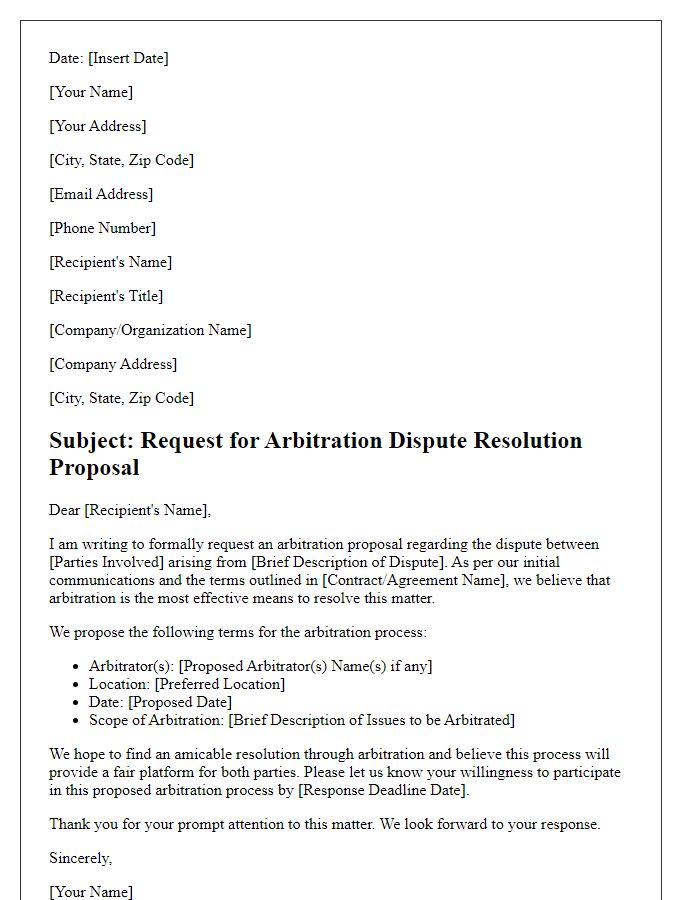
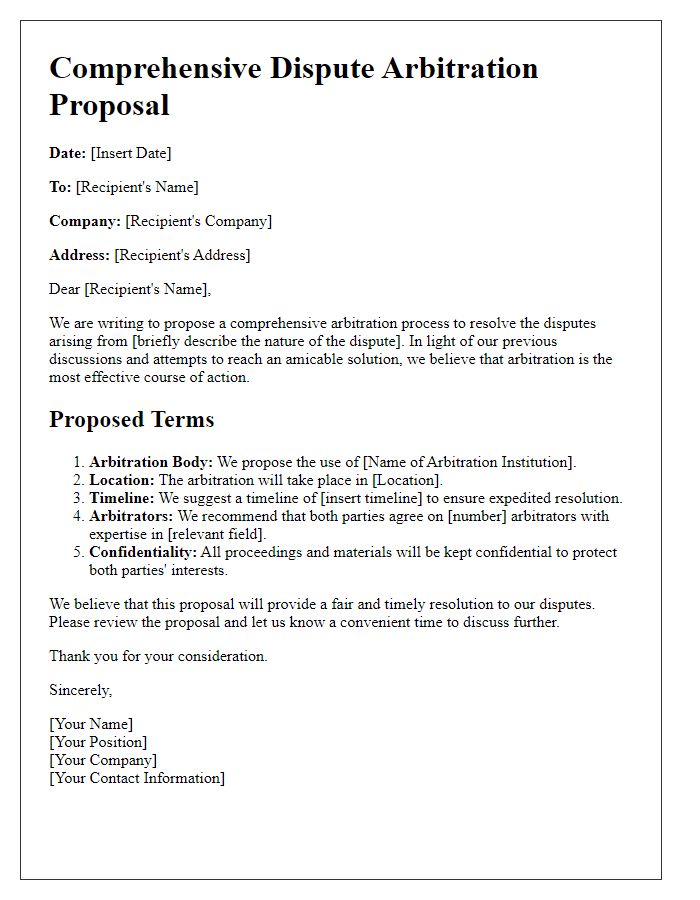


Comments